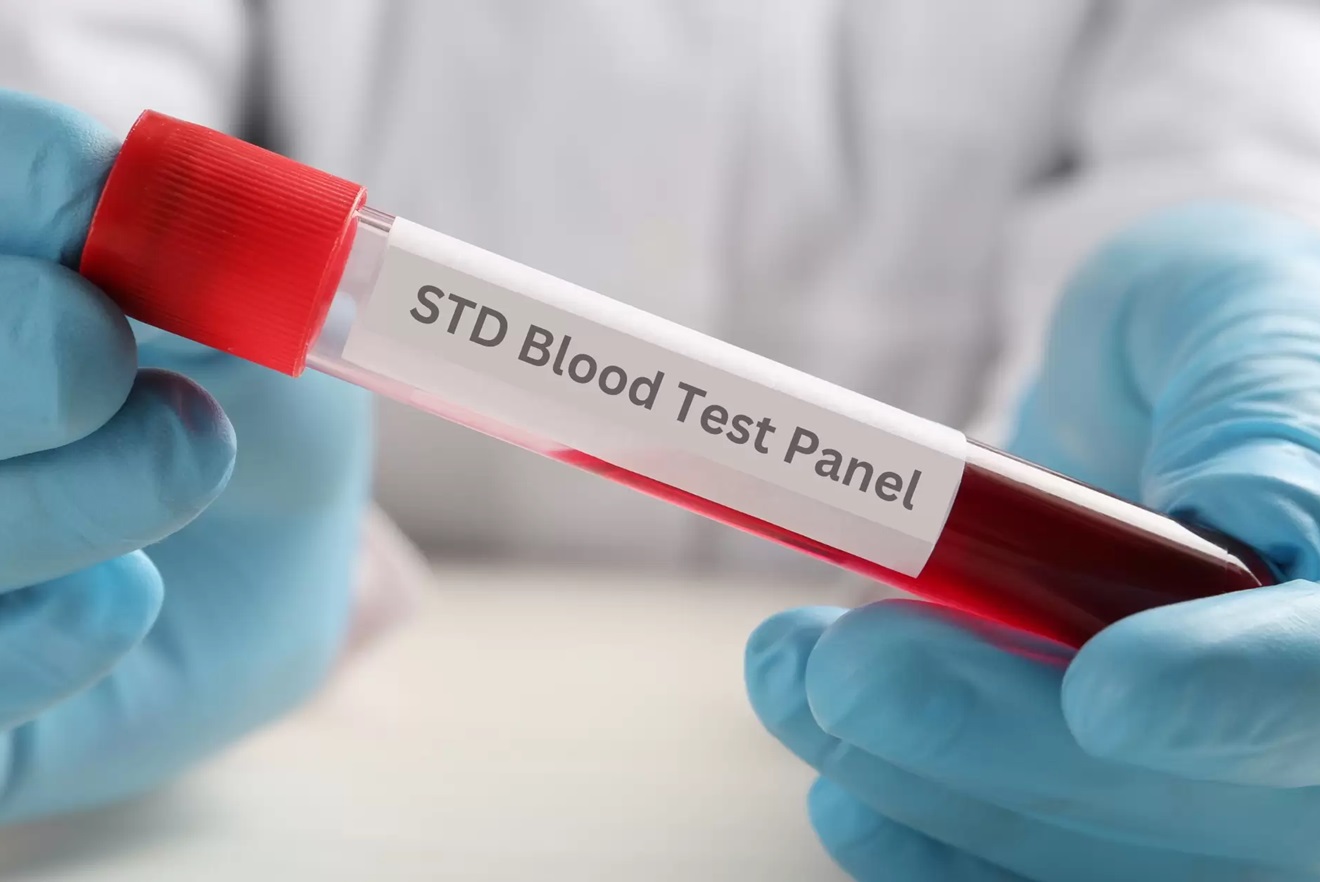STD and STI Testing
From prevention to treatment for sexual health.



STDs and STIs are infections primarily spread through sexual contact, caused by bacteria, viruses, or parasites. It is a significant public health concern, affecting millions of people worldwide. Early detection through regular Sexual Health Awareness Tests is essential for fostering healthy relationships and maintaining sexual health.
At Tadawi Medical Center, we offer comprehensive STD and STI testing under the supervision of expert doctors in our health and sexuality clinic, providing complete care for patients facing sexual health issues.
We offer in clinic services, home service or consultations through phone. If you think you may have an STD or STI we are here to support you on your journey to ensure you get the right diagnosis, treatment and counselling.
What are sexually transmitted diseases?
- HIV (Human Immunodeficiency Virus): affects the immune system and leads to AIDS.
- Syphilis: A bacterial infection that can cause severe complications if left untreated.
- Gonorrhea: affects the reproductive system and can lead to infertility if not treated.
- Chlamydia: One of the most common STDs, it can cause reproductive issues.
- Genital herpes: causes painful sores in the genital area.
HPV (Human Papillomavirus): Can lead to genital warts and is associated with certain types of cervical cancer. - Hepatitis B & C: transmitted through sexual contact, they can cause liver damage.
- Trichomoniasis: A parasitic infection causing discharge and pain during urination.
What are the symptoms of sexually transmitted infections?
- Sores or bumps on the genitals or in the oral or rectal area.
- Painful or burning urination.
- Discharge from the penis.
- Unusual or odorous vaginal discharge.
- Unusual vaginal bleeding.
- Pain during sex.
- Sore, swollen lymph nodes, particularly in the groin but sometimes more widespread.
Are STD and STI tests the same?
While the terms STD (sexually transmitted disease) and STI (sexually transmitted infection) are often used interchangeably, they have slightly different meanings.
- STI (sexually transmitted infection): refers to an infection that has entered the body by bacteria, viruses, or parasites but may not yet be causing symptoms. Many STIs don’t show signs right away, which means a person can have an infection without developing a disease.
- STD (sexually transmitted disease): refers to an infection that has progressed to the point where it causes symptoms or affects the body.
In short, STI refers to the infection itself, while STD refers to the more advanced stage where the infection results in symptoms or health issues. comprehensive STD and STI tests typically involve the same procedures, as they aim to detect the presence of infections, whether they have caused disease or not.
How do you test if you have STI or STD?
A sexually transmitted infection test typically involves several methods depending on the type of infection being tested for. Here is How are STIs diagnosed:
- Blood Test: A small blood sample is taken and analyzed in a lab, used for detecting infections such as HIV, syphilis, and hepatitis.
- Urine Test: The patient provides a urine sample, which is tested for bacterial presence. Used for detecting infections such as chlamydia and gonorrhea.
- Swab Test: A swab is used to collect samples from the genital area. This is often used for gonorrhea, chlamydia, or herpes testing.
- Physical Examination: In some cases, a doctor may perform a physical examination to check for visible symptoms like sores, warts, or unusual discharge. This is particularly common for conditions like genital herpes or HPV.
- Viral Culture or DNA Test: Involves taking a sample from a sore or lesion for lab analysis. Used for detecting viral infections like herpes.
- Liquid Based Cytology specimen: LBC involves collecting samples, usually with a small brush, and suspending them in a liquid medium.
Which is better: STI or STD?
Neither of the sexually transmitted infection tests can be deemed superior to the other, as each is used to describe different stages of infection. Here’s the distinction between them:
- STI (sexually transmitted infection):
This term is more commonly used in medical contexts that focus on the early stages of infection—specifically prevention and early detection. It highlights the possibility of infection without clear symptoms, encouraging more individuals to get comprehensive STD and STI tests.
For example, a person may contract chlamydia or gonorrhea without realizing it, as symptoms may not appear immediately or at all. Using this term can reduce feelings of stigma and encourage more people to seek testing, even if they do not feel ill.
- STD testing (sexually transmitted disease):
This term is used in more advanced stages, focusing on the progression of the disease when infections lead to visible signs or other health complications, such as genital warts (human papillomavirus) or sores (herpes).
Can urine tests detect STIs or STDs?
Yes, a urine test can detect certain STIs or STDs, though not all of them. Urine tests are commonly used to diagnose:
- Chlamydia test: It often shows mild or no symptoms but can lead to serious reproductive health issues if left untreated. It is often caused by the bacteria Chlamydia trachomatis.
- Gonorrhea: is caused by Neisseria gonorrhoeae and can also be asymptomatic, though it may present with symptoms like painful urination or discharge.
Can blood tests detect an STI or STD?
Yes, a blood test can screen for STIs or STDs, though it is not the only method for diagnosing all infections. Blood tests can detect the presence of antibodies or genetic material specific to infections, aiding in the diagnosis of various diseases such as:
- HIV (Human Immunodeficiency Virus): detected through specific blood tests that identify antibodies or the virus itself.
- Syphilis: diagnosed via a blood test that detects antibodies to the infection.
- Hepatitis B and C: detected by identifying antibodies or antigens related to hepatitis viruses.
Can you get an STI/STD testing in Qatar?
Yes, you can get a comprehensive STD and STI test in Qatar. We are happy to offer you at Tadawi Medical Center STI/STD testing services. We provide confidential testing and treatment services, as well as counseling and treatment.
It’s recommended to consult a healthcare provider for accurate advice on which tests are appropriate based on your symptoms or concerns.
Tadawi Medical Center offers the latest sexually transmitted disease prevention services and tests in Qatar.
Accurate results, exceptional care, and the best prices.
BOOK NOW